Before You Eat, Make Sure to Wash Your Produce — Here's How
Published Aug. 12 2022, 9:03 a.m. ET
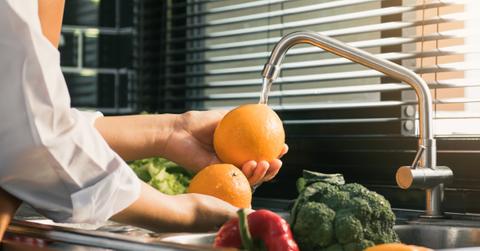
Whether you're trying to avoid pesticides or taking extra precautions amid the pandemic, it's never a bad idea to wash your fruits and veggies. It's estimated that 1.1 billion pounds of pesticides are sprayed on crops annually, with nearly 70 percent of non-organic produce containing residues of harmful chemicals.
To make sure you're only putting things with nutritious value into your body, keep reading for a how-to on washing your fruits and vegetables.
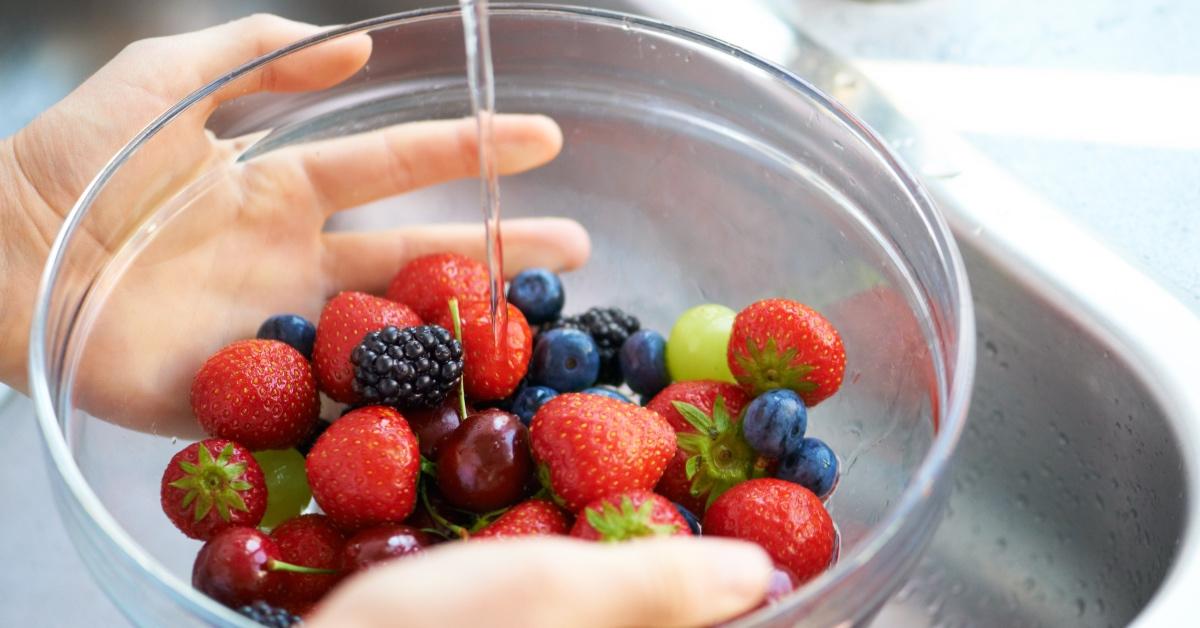
Why should you wash your fruits and vegetables?
Although it seems like a no-brainer, you'd be surprised how much trouble washing your produce can save. Fruits and vegetables often carry more than just dirt. The Centers For Disease Control and Prevention (CDC) say that raw fruits and vegetables can also carry dangerous germs such as salmonella, E-coli, and listeria. Healthy adults might survive a bout of food poisoning, but complications related to food poisoning can be deadly for those over 65 or under 5 years old.
Here's how to properly wash your fruits and vegetables.
According to the U.S. Food and Drug Administration (FDA), almost 48 million people get food poisoning yearly, so there is a "right" and "wrong" way to wash your fruits and vegetables. Choose produce without visible damage, and ensure that any pre-cut items you pick up have been properly refrigerated. Additionally, keep fresh produce away from raw meat, poultry, and seafood in your shopping cart, and use separate cutting boards at home to prevent cross-contamination.
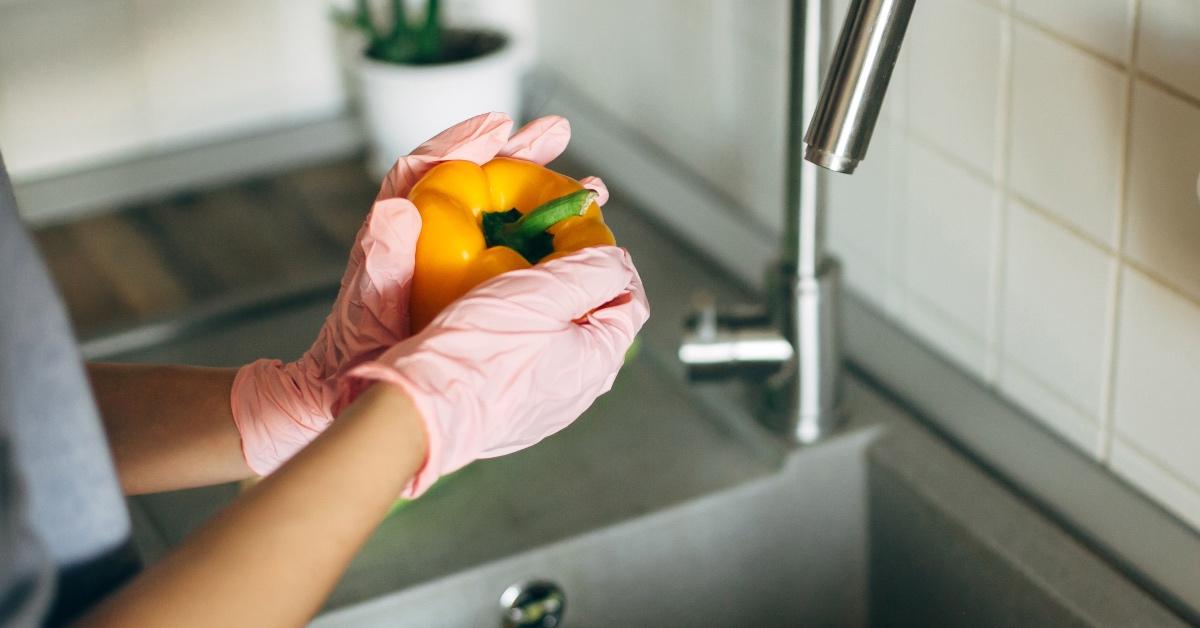
The FDA says to begin by washing your own hands with soap and warm water for 20 seconds. Dry your hands, then thoroughly rinse all produce before you begin to chop, peel, or eat, so that bacteria aren't transferred from the knife to the food. The most important tip the FDA suggests is that produce wash or dish soap are unnecessary for cleaning produce — all you need is cold, running water.
Firmer produce such as melons, cucumbers, apples, or potatoes might require a vegetable brush if there is stubborn dirt. Scrubbing your produce does not require soap either. Don't forget to dry your clean produce with a clean cloth.
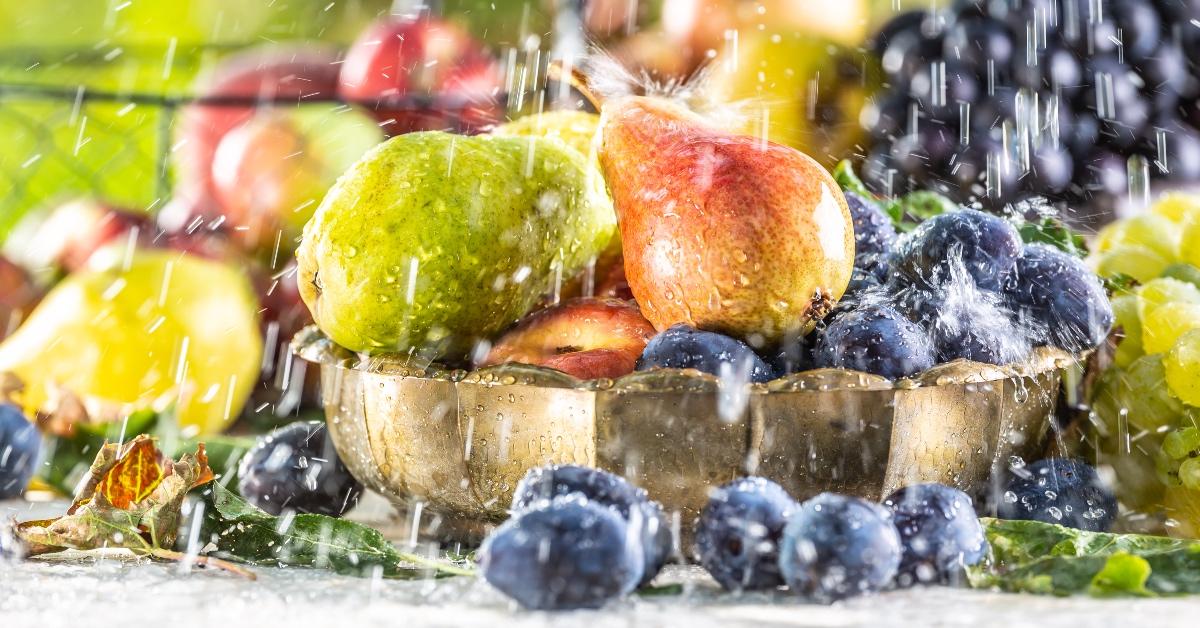
Why can't you use soap or detergent to clean your produce? The FDA has an answer for that too. "Produce is porous, so soap and household detergents can be absorbed by fruits and vegetables, despite thorough rinsing, and can make you sick," the administration says.
Can you use vinegar to wash fruits and vegetables?
Experiments have been performed to test the efficiency of vinegar and lemon juice at reducing bacteria and pesticides. Per Health, one study examined lettuce, broccoli, apples, and tomatoes after being exposed to bacteria. The produce were then cleaned with a variety of solutions, including commercial produce wash, cold tap water, and a solution comprised of five percent vinegar and 13 percent lemon solution.
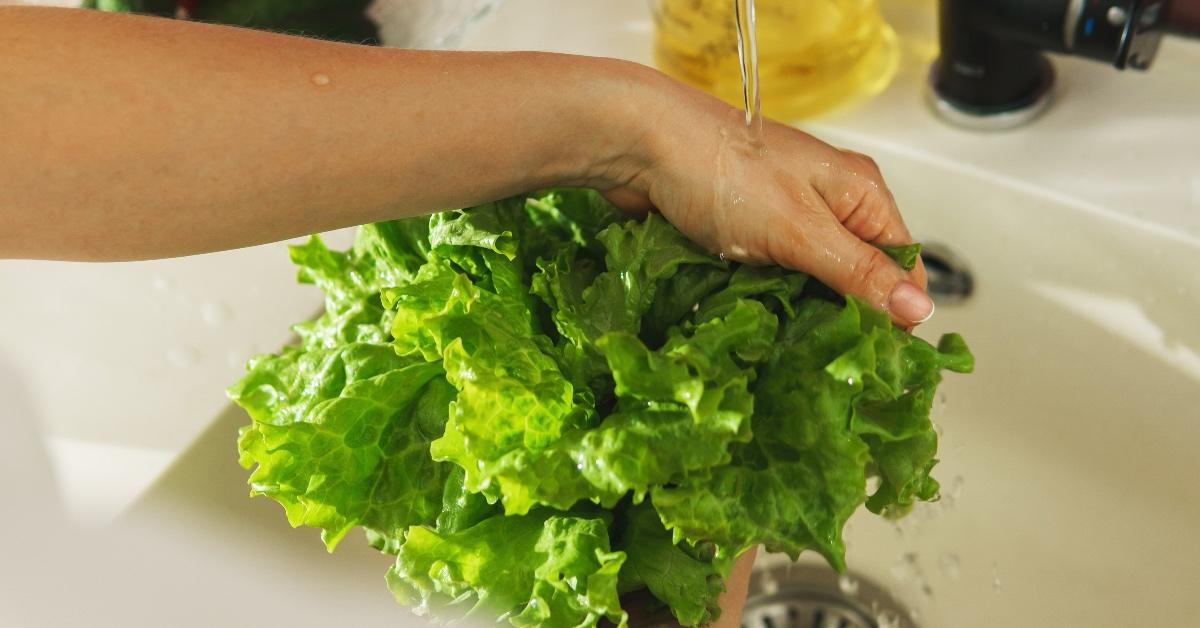
The results of the study showed that ultimately, soaking produce in vinegar and lemon didn't reduce bacteria levels in a significant way. Cook's Illustrated, per NPR, also performed a similar experiment in 2007, although this experiment appeared more effective. Using a spray bottle filled with 3 cups of water and 1 cup of white vinegar removed 98 percent of the bacteria on one piece of fruit.
Ultimately, it's best to listen to the advice of trained experts and wash your produce with cold tap water — nothing else.